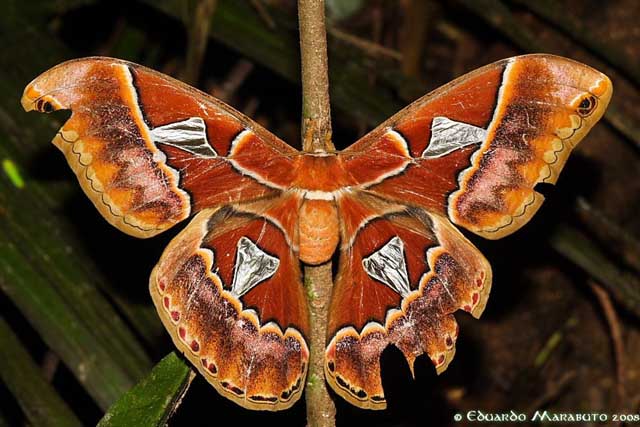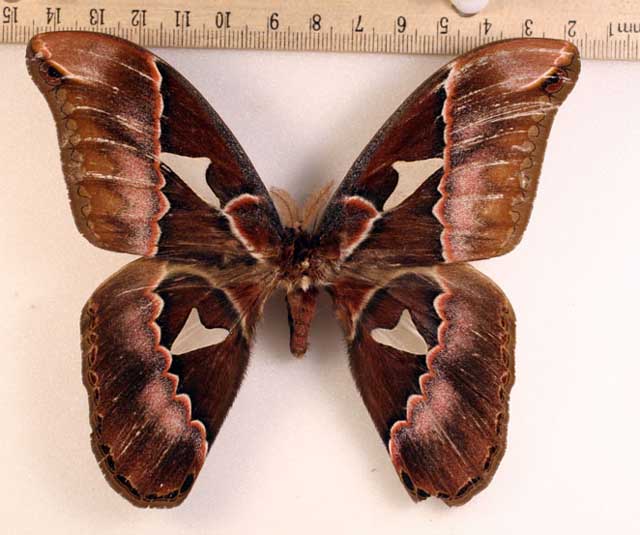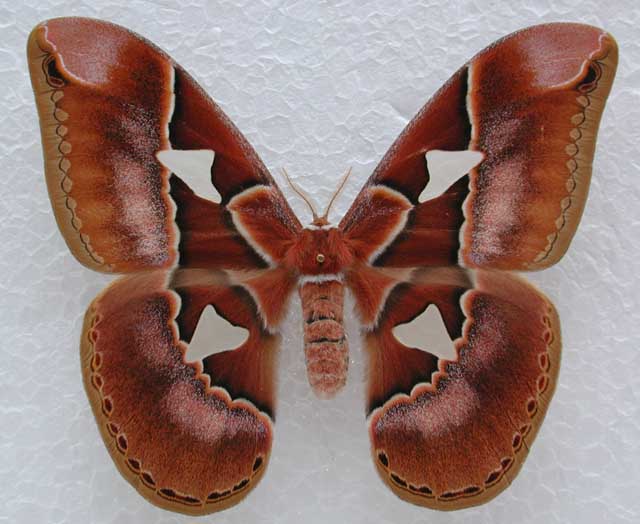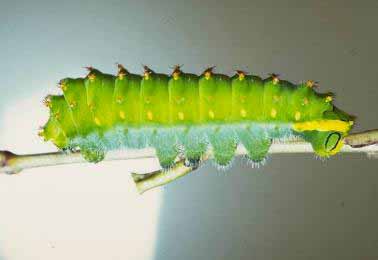Rothschildia roxana
roths-CHILD-ee-uhmmrocks-SAN-uh
Schaus, 1905

Rothschildia roxana female copyright Kirby Wolfe.
TAXONOMY:Superfamily: Bombycoidea, Latreille, 1802 |
"Girl from Ipanema"
midi by Mel WebbON.OFF |
DISTRIBUTION:
Rothschildia roxana flies in
Mexico: Veracruz, Oaxaca, Tabasco, Quintana
Roo, Yucatan (PK) and Chiapas; and in
Belize: Cayo and Toledo;
Guatemala: Huehuetenango (1000m); and
Nicaragua: Jinotega, Chontales, Zelaya,
Rio San Juan, probably Matagalpa and Boaco.
The following moth from Cortes, Honduras, might?? be R. roxana.

Rothschildia roxana, Cortes, Honduras,
courtesy/copyright
Eduarto Marabuto,
tentative id by Bill Oehlke.

Rothschildia roxana Veracruz, Mexico, courtesy of Kelly Price.
FLIGHT TIMES AND PREFERRED FOOD PLANTS:
This species feeds on Prunus serotina, Prunus laurocerasus and Ligustrum.

Rothschildia roxana male, Mexico, courtesy of Eric van Schayck.

Rothschildia roxana female, Mexico, courtesy of Eric van Schayck.
ECLOSION, SCENTING AND MATING:
Like most of the
Rothschildia, except for the diurnal zacateca, this
species calls and pairs at night.
EGGS, LARVAE, COCOONS AND PUPAE:
It is interesting to watch Rothschildia fashion their cocoons. A strong peduncle with a few support silk strands secures the structure while the larva continues "padding its nest" with a continuous back-and-forth movement of the head.There are both inner and outer cocoons, each with a relatively long valve to facilitate eclosions. |
 |

Rothschildia roxana larva copyright Kirby Wolfe
Larval Food Plants
It is hoped that this alphabetical listing followed by the common name of the foodplant will prove useful. The list is not exhaustive. Experimenting with closely related foodplants is worthwhile.
Ligustrum |
Privet |
Use your browser "Back" button to return to the previous page.
Return to Rothschildia Genus
Goto South American Saturniidae Directory
Goto Mexico and Central American Saturniidae Directory
The pronunciation of scientific names is
troublesome for many. The "suggestion" at the top of the page is
merely a suggestion.
There are many collectors from different countries whose
intonations and accents would be different.
Roxana is the name of the wife of Alexander the Great. I do
not know why Schaus chose this name.